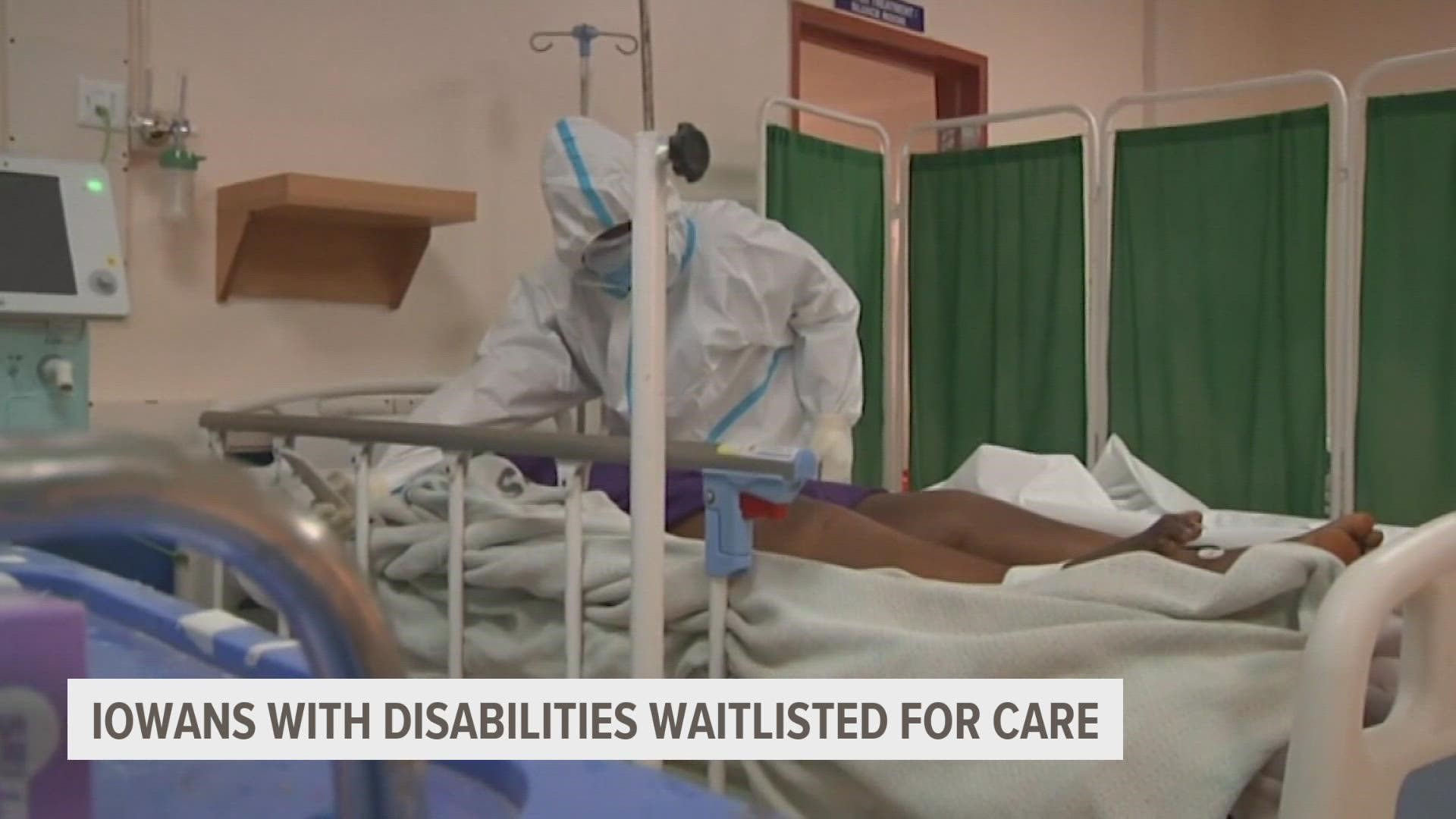DES MOINES, Iowa — Kyla Claussen is an Iowan with a serious, unknown disease that classifies her as a person with a physical disability.
"I have a very aggressive disease effects by swallowing my speech, I am on BIPAP at night. And my walking I use my wheelchair for long distances and I'm now in my house by use for crutches otherwise," Kyla Claussen, said.
For Kyla and other people living with a disability, there is help available through various Medicaid Waiver programs, also known as (HCBS's).
Liz Matney with Iowa Department of Public Health said these wavier programs are a way we can keep people with disabilities out of nursing homes.
"Medicaid has what's called home and community-based waivers. And those waivers allow for individuals to continue to live in their home and community and receive services that they need for their disability or maybe their aging," Matney said.
Kyla lives in the small town of Avoca, Iowa and, although she is happy in her home, she said living in a rural community affects her access to help. Adding to that problem, she sits on 4 medical waiver waitlist and the wait time is between 1-4 years long for each one.
"There's no emergency slot. So lessons and progressive you think you get to you know, get some help sooner, right? You can't, you just have to wait for everybody else," said, Kyla Claussen.
Matney says a portion of the reason for the extensive waitlist is legislative funding.
"It really depends on how funding is allocated through the appropriation process with the legislature. I can't speak to the way back in terms of when these were set up and how it was decided how many slots are on each waiver available for people to sign up for," Matney said.
Matney explains that people with intellectual disabilities often see more funding for HCBS programs, something she believes is due to people believing people with physical disabilities have access to better opportunities.
"People, you know, right or wrong, have thought in the past, that individuals with physical disabilities still have lots of opportunities to become employed, they might have commercial insurance, they might have access to other services that meet their needs outside of the HCBS waivers."
In Kyla's case, she needs this care with very little help from outside entities. She encourages people to put themselves in her shoes.
"An accident can happen at any point, or some medical disaster, a person can can be become disabled at any point in time in their life. We all grow old and at some point you need help or rely on others and it's better off to you know, make sure your future safe and right now we're all struggling." Kyla said.
If anyone has questions or concerns about services or feels like they aren't being heard, Matney has a virtual open-door policy and is happy to meet with Medicaid members to help them access services. Matney holds virtual town halls that discuss Medicaid waivers and other important topics in regard to Iowans with disabilities.

